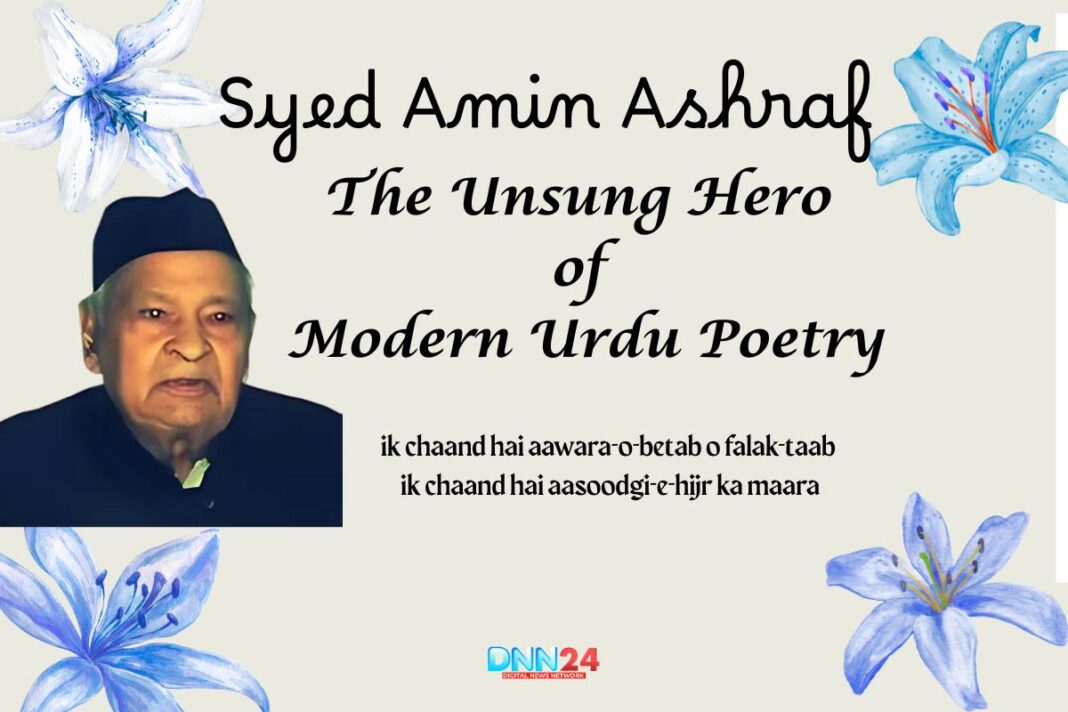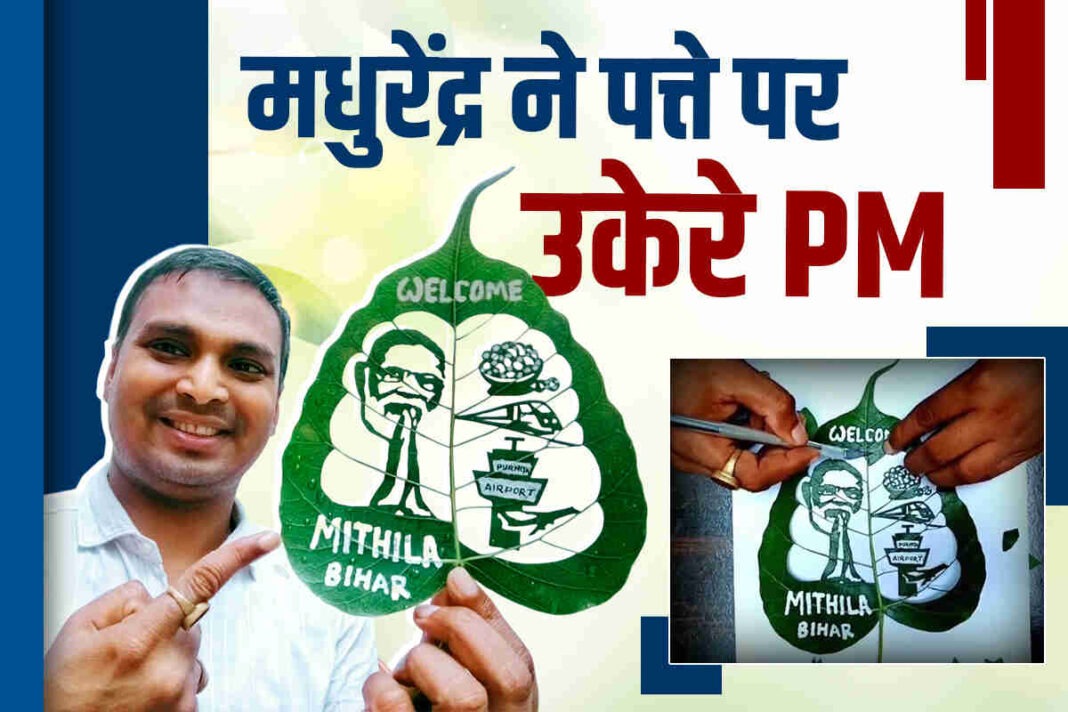Syed Amin Ashraf was a man who found magic in simple words. Born in a small village, he became one of Urdu poetry’s most beloved voices. His life was not filled with riches or fame, but with something more precious – the ability to touch hearts through his verses.
koi be-jaan koi be-ghar nahin dekha jata
Syed Amin Ashraf
roz tarrara-e-mahshar nahin dekha jata
Like a gardener who tends to flowers in silence, Ashraf nurtured his poetry with patience and love. His words carried the sweet fragrance of rural India and the deep wisdom of someone who understood joy and sorrow. Today, when people read his ghazals, they feel like an old friend speaks directly to their hearts.
Humble Beginnings in a Small Village
On 10 July 1930, in the quiet village of Kichhauchha Sharif, a baby boy who would grow up to become a literary treasure was born. Syed Amin Ashraf’s father, Syed Habeeb Ashraf, worked as a librarian, where young Amin first fell in love with books. The family was not wealthy, but their home was rich with stories and dreams.
be-lutf hai ye soch ki sauda nahin raha
Syed Amin Ashraf
aankhen nahin rahin ki tamasha nahin raha
As a child, Amin would sit in corners, watching the world around him with curious eyes. He noticed how the morning sun painted golden patterns on mud walls, his mother hummed while cooking, and the village elders shared wisdom under the old banyan tree. These simple moments became the seeds of his future poetry.
zeb us ko ye aashob-e-gadai nahin deta
Syed Amin Ashraf
dil mashwara-e-nasiya-sai nahin deta
The village mosque’s call to prayer, the laughter of children playing in dusty lanes, and the quiet conversations of farmers returning home – all these sounds and sights found their way into his heart. Even when money was tight and life felt difficult, young Amin learned that beauty could be found everywhere. His mother, a wise woman, always encouraged him to study and dream big. She would say, “Beta, education is the one treasure no one can steal from you.” These words stayed with him forever, giving him strength during hard times.
kahin shoala kahin shabnam, kahin KHushbu dil par
Syed Amin Ashraf
wo saman-bu hai bahar-rang bahar-su dil par
University Life and Literary Awakening
Leaving his village for Aligarh Muslim University was like stepping into a new world for young Ashraf. The university was big and bustling, very different from his quiet village life. At first, he felt like a small fish in a vast ocean, but gradually he found his place among books, teachers, and fellow students who shared his love for literature. He completed his BA, then his MA, and finally earned a PhD in English Literature.
jo Dar apnon se hai ghairon se wo Dar ho nahin sakta
Syed Amin Ashraf
ye wo KHanjar hai jo sine se bahar ho nahin sakta
His research focused on Sarojini Naidu, the famous Indian poet whose words about love and longing later influenced his writing style. University life was not easy for Ashraf. Many nights, he went to bed hungry because there was not enough money for food. Sometimes he had to choose between buying books and eating a proper meal. But these struggles never broke his spirit. Instead, they made his poetry deeper and more meaningful.
KHayal hai ki haqiqat hai ya fasana hai
Syed Amin Ashraf
wo nisti ho ki hasti tilism-KHana hai
He participated in mushairas (poetry gatherings) where he shared his verses with other writers and poetry lovers. His room at the university often glowed with candlelight as he worked late into the night, writing poems that captured his dreams and disappointments. Fellow students remember him as a gentle soul who could find hope even in the darkest moments. Teachers recognised his talent early and encouraged him to keep writing, even when recognition seemed far away.
hai irtibaat-shikan daeron mein baT jaana
Syed Amin Ashraf
chaman ka mauja-e-baad-e-saba se kaT jaana
Overcoming Life’s Greatest Challenges
Life as a poet in India was never easy, and Ashraf faced many challenges throughout his career. In the 1960s, he became a teacher at Aligarh Muslim University, sharing his knowledge and passion for literature with young minds. But even as he taught others, he continued to struggle for recognition as a writer. Publishers hesitated to print his books, and critics sometimes dismissed his work as old-fashioned.
jaane kis moD pe de hijr ki saughat mujhe
Syed Amin Ashraf
par gawara bhi nahin tark-e-mulaqat mujhe
There were moments when he wondered if his dreams of becoming a respected poet would ever come true. One particularly painful memory was when a famous critic refused to review his book, saying it was not worth his time. Such rejection would have crushed many writers, but Ashraf used this pain to fuel his creativity. He wrote more passionately, pouring his heart into verses that spoke of unfulfilled desires and unwavering hope.
dil shahr-e-tahayyur hai ki wo mamlikat-ara
Syed Amin Ashraf
kya saltanat-e-balKH-o-samarqand-o-buKHara
His poetry collections like “Jadae Shab”, “Bahare Ijaad”, and “Qafase Rang” were born from these struggles. Slowly, people began to notice his unique voice – a beautiful blend of classical Urdu tradition and modern emotional depth. When awards like the Ghalib Academy prize finally came his way, they felt even more precious because of all his hardships. His friends often said that Ashraf never complained about his difficulties; instead, he transformed them into beautiful poetry that helped others find comfort in their struggles.
ye aankh tanz na ho zaKHm-e-dil hara na lage
Syed Amin Ashraf
mujhe qarar to ho ya use haya na lage
Poetry That Lives Forever
Syed Amin Ashraf passed away on 7 February 2013, but his words continue to live in the hearts of poetry lovers everywhere. Unlike many poets who sought fame and attention, Ashraf preferred to work quietly, like a craftsman perfecting his art in solitude. He had a special way of writing that made complex emotions feel simple and relatable. His poetry was like a bridge connecting classical Urdu’s grand traditions with modern people’s everyday feelings.
bahaar aati hai lekin sar mein wo sauda nahin hota
Syed Amin Ashraf
har aahaT par teri aawaz ka dhoka nahin hota
Students and friends remember how he often wrote personal couplets for them, each carefully chosen to bring comfort or inspiration. His deep faith played an important role in his life, and he frequently visited the shrine of Ashraf Jahangir Semnani, where he found peace and spiritual strength. Even today, when young poets discover his ghazals and nazms, they find beautiful words and a gentle reminder that life’s difficulties can be transformed into something meaningful and beautiful.
jo na ho dard-ashna wo sarKHushi kis kaam ki
Syed Amin Ashraf
shairi tamsil ya surat-gari kis kaam ki
His greatest lesson was that true greatness comes not from avoiding struggles but from facing them with grace and dignity. Syed Amin Ashraf’s poetry offers a quiet corner where hearts can rest and find hope in a world of noise and chaos. His life story teaches us that sometimes the most powerful voices are the gentlest ones, and the most lasting treasures are created not in grand palaces, but in humble rooms where dreamers dare to put their hearts on paper.
phenki kisi ne kankari dil yak-ba-yak dariya hua
Syed Amin Ashraf
dariya mein ek sailab tha sailab tha umDa hua
Also Read: India Gate: A Timeless Symbol of Valour and Memory
You can connect with DNN24 on Facebook, Twitter, and Instagram and subscribe to our YouTube channel.



